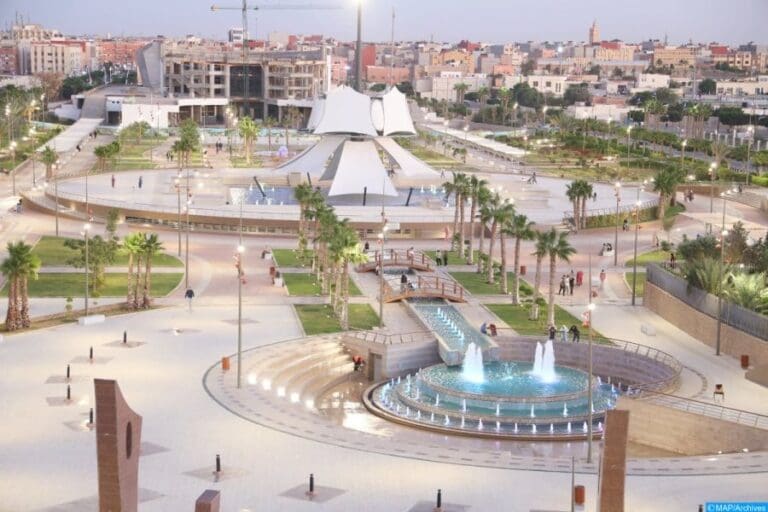Supporting Morocco’s autonomy over its Sahara not only aligns France diplomatically, but also opens doors for French companies looking to expand in this resource-rich region.
President Emmanuel Macron’s visit has served as a catalyst for increased French investment in the Sahara. This official trip to Morocco highlighted a renewed interest from French companies in this region with strategic economic potential. This state visit, carried out in the company of a delegation of more than 40 influential business leaders, illustrates a notable shift in France’s position on Morocco’s proposed Sahara autonomy plan, now seen by Paris as essential to regional stability and development.
This direction comes after President Macron affirmed France’s recognition of Moroccan sovereignty over Western Sahara in a historic letter addressed to the King of Morocco in August, on the occasion of the Throne Day. This strategic initiative aims to strengthen France’s role as a key ally of Morocco. Macron supports Morocco’s 2007 autonomy plan, calling it “the only basis for a fair, sustainable and negotiated solution” to the conflict.
Such recognition marks a break with France’s previous position, which supported the UN-led peace process without explicitly endorsing Moroccan sovereignty. By supporting Morocco’s authority in the region, France is now more closely aligned with Rabat and adhering to a growing international consensus in favour of the Moroccan proposal. Macron’s statement reflects a strategic vision aimed at promoting regional stability, economic growth and collaborative development in the Sahara..
The move not only strengthens diplomatic alignment with Morocco, but also opens up opportunities for French companies looking to establish themselves in this resource-rich region. The Sahara is known for its valuable resources, including vast phosphate reserves exploited by OCP, a world leader under Moroccan state control. In addition to mining, the region’s Atlantic coastline has a vibrant fishing industry, attracting companies such as Chancerelle, a French player known for its commitment to sustainable fishing.
Chancerelle’s entry into this market illustrates the interest of French companies in the region’s natural resources. Etienne Giros, president of the French Council of Investors in Africa, sees the Sahara as an ideal hub for renewable energy projects, a sector in which France and Morocco are investing heavily.
According to him, the climatic conditions are conducive to the development of solar energy, capable of powering not only Western Sahara, but also southern Morocco. If Franco-Moroccan relations continue to strengthen, significant investments could emerge, benefiting both countries.
Despite promising economic prospects, French companies operating in the region face legal challenges from the Polisario Front, a pro-Saharan independence movement, which accuses them of financing a colonial enterprise. Nevertheless, Giros sees these projects as a way to develop local infrastructure, create jobs, and boost economic growth for local communities.
Outside of renewable energy, France aims to increase its investment in the region’s transport infrastructure, including ports and railways. Through Proparco, the private sector division of the French Development Agency, France will finance a high-voltage power line between Dakhla and Casablanca, thus aligning with Morocco’s renewable energy objectives and its ambition to export energy.
Macron’s visit highlights the long tradition of economic partnerships between France and Morocco, illustrated by more than 1,000 French companies present in the kingdom and substantial investments in sectors such as automotive, finance, and real estate. The strategic support for Morocco’s autonomy plan signals not only a diplomatic alignment but also a path for future French initiatives, particularly in the Sahara’s booming sectors.
RT/Sf/te/fss/gik/APA


